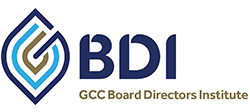Walid Shukri discusses why a “disconnect” is created between company and corporate governance maturity as the organisation grows
Oftentimes an organisation begins as an establishment with a controlling owner with major family influence and corporate governance practice may not exist.
The establishment may move on after some years and become a limited liability company, while governance practices may not exist or could be in early stages of development. Some of these limited liability companies can be significant companies in size operating in various jurisdictions. However, the companies may lack formalised Boards and Committee charters, delegation of authorities, and lack compliance and risk functions.
The limited liability companies might move on and become Closed Joint stock companies. Some limited mandatory governance requirements might be practiced, such as establishing a board of directors and audit committee. The closed joint stock companies may move on and become publically held and may become global conglomerates.
For the publically held companies, corporate governance regulations are imposed by the market regulator, these are simply mandatory and, therefore, leading corporate governance practices may not be adopted. Global conglomerates may similarly not be following leading and high standard corporate governance practices.
I have served a multinational company that was management owned operating in 80 countries. The company’s profit was deteriorating significantly. Due to the significant losses, the company decided to implement best practices in corporate governance. They appointed independent board members, established risk, audit, nomination and remuneration committees, established a delegation of authority, internal audit department, conflict of interest and whistleblowing policies. Therefore, the main trigger for establishing best practice corporate governance was the significant deterioration in profits.
I have also served a conglomerate family business with over 3,000 employees and initially the company only had family board members. The family decided to IPO the business and started to implement corporate governance required by the Capital Market. The company implemented the governance requirements of the capital market in form only and the implementation of the corporate governance requirements became a “ticking exercise”. The family submitted their file to the Capital Market for the IPO and failed twice. Only after several trials, the IPO succeeded. The trigger for the best practice corporate governance was the IPO and the capital market requirements. I believe that to apply best practices, corporate governance needs to happen in the early stage of an established company.
I believe that adopting corporate governance practices should be relevant to the organisation maturity level and size, not only as required by the regulations or when the organisation is having significant losses.
In the early stages of an established company, consider including independent directors with mix of competencies and experience and establish appropriate board committees to allow effective discharge of board duties to formalise adequate and relevant governance policies and guidelines.
————————————————————-

Walid Shukri serves as a board member at a wide range of companies. The firms are at various stages of maturity, ranging from family businesses to being listed on the stock exchange. Walid’s extensive boardroom experience spans various industries, such as construction and engineering, hospitality, manufacturing, consumer electronics, recycling and real estate.
Walid was born in Saudi Arabia and went to King Fahd University of Petroleum & Minerals, Saudi Arabia, graduating in 1989 with a Bachelor’s Degree from the School of Industrial Management. He has since held senior partnership roles at Deloitte and PwC in both the US and Saudi Arabia. He has served on various accounting and audit setting committees at the Institute of Internal Auditors, Institute of Management Accountants and regularly speaks at corporate governance forums.
—————————————————————



COMMENTS ARE OFF THIS POST